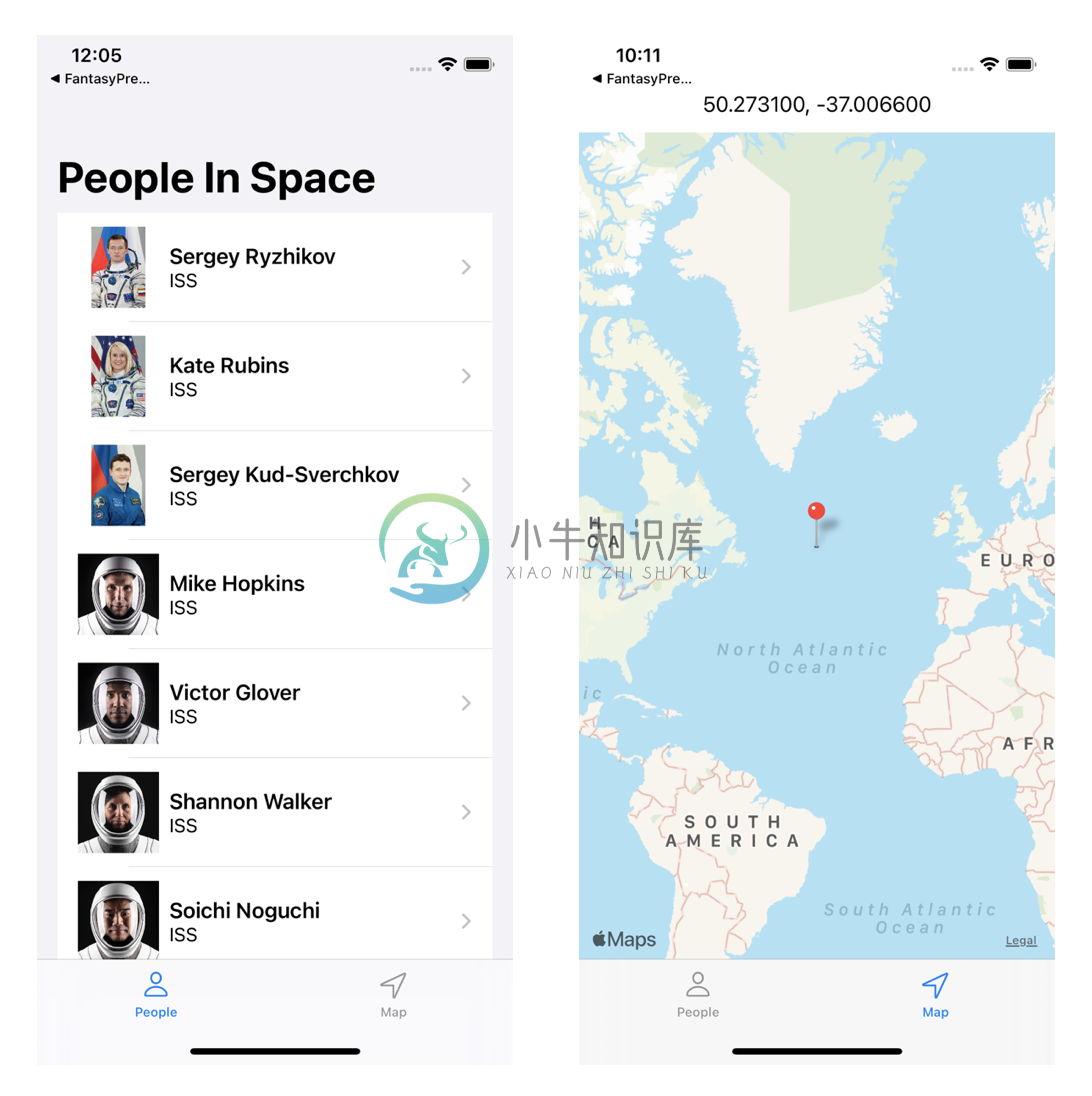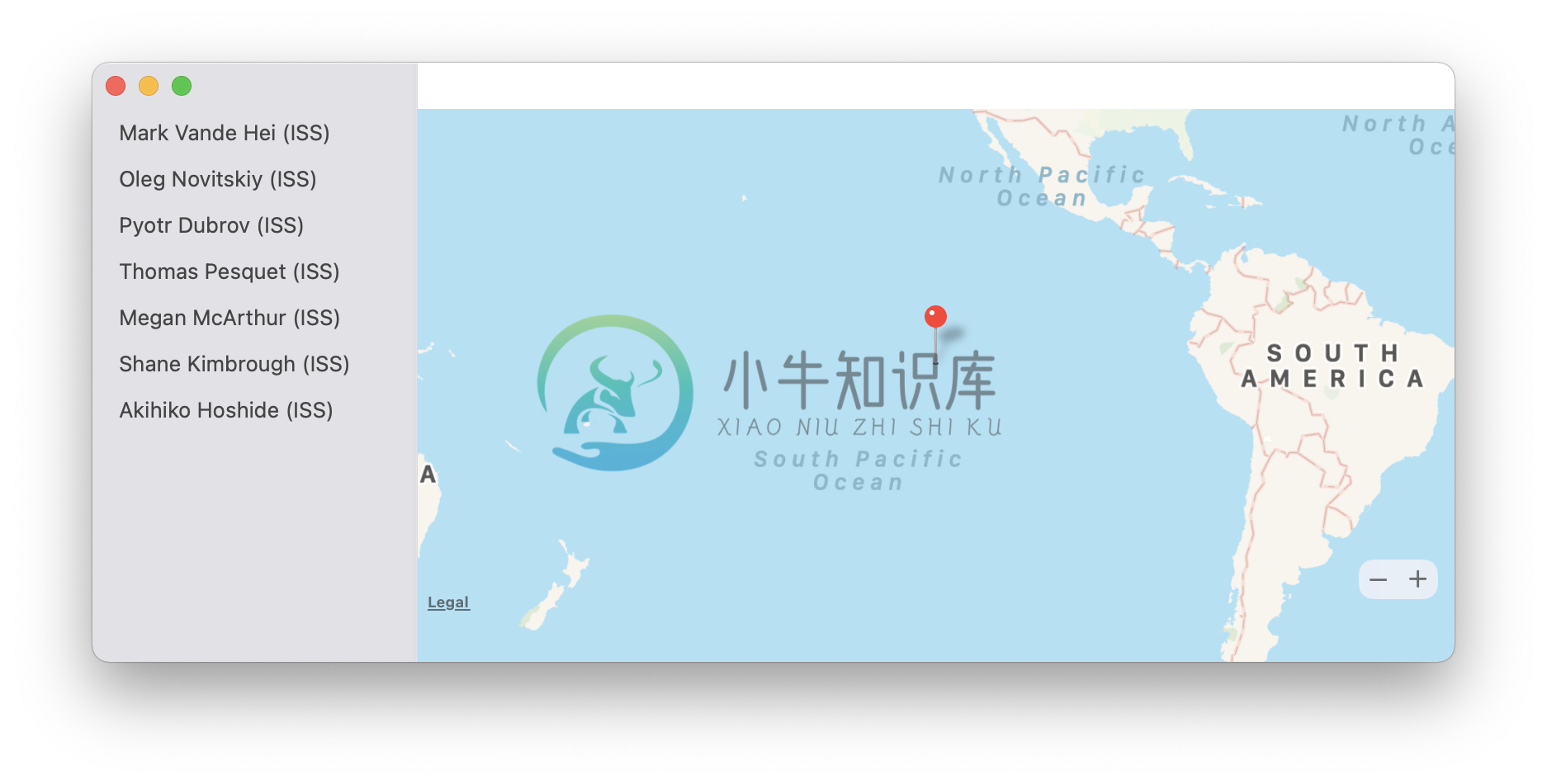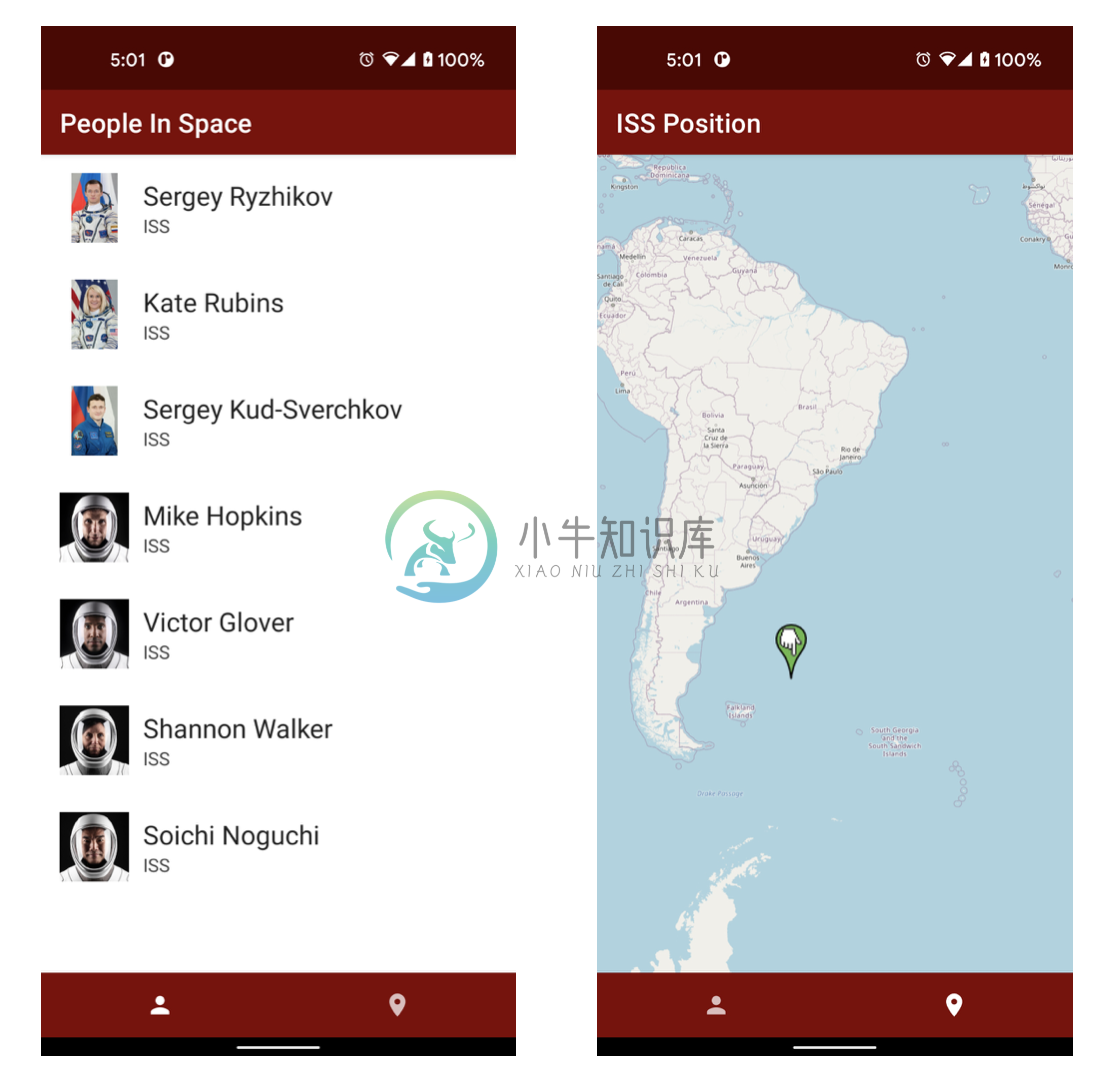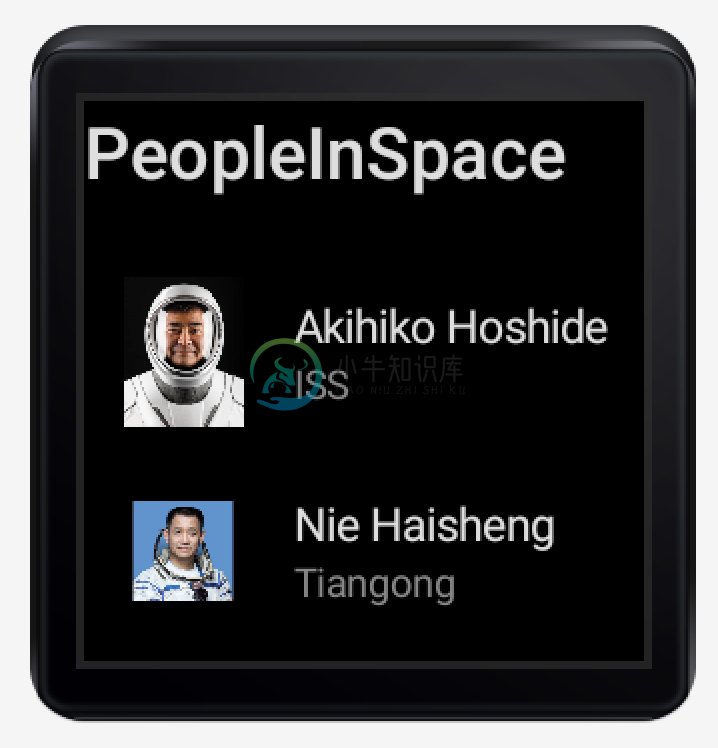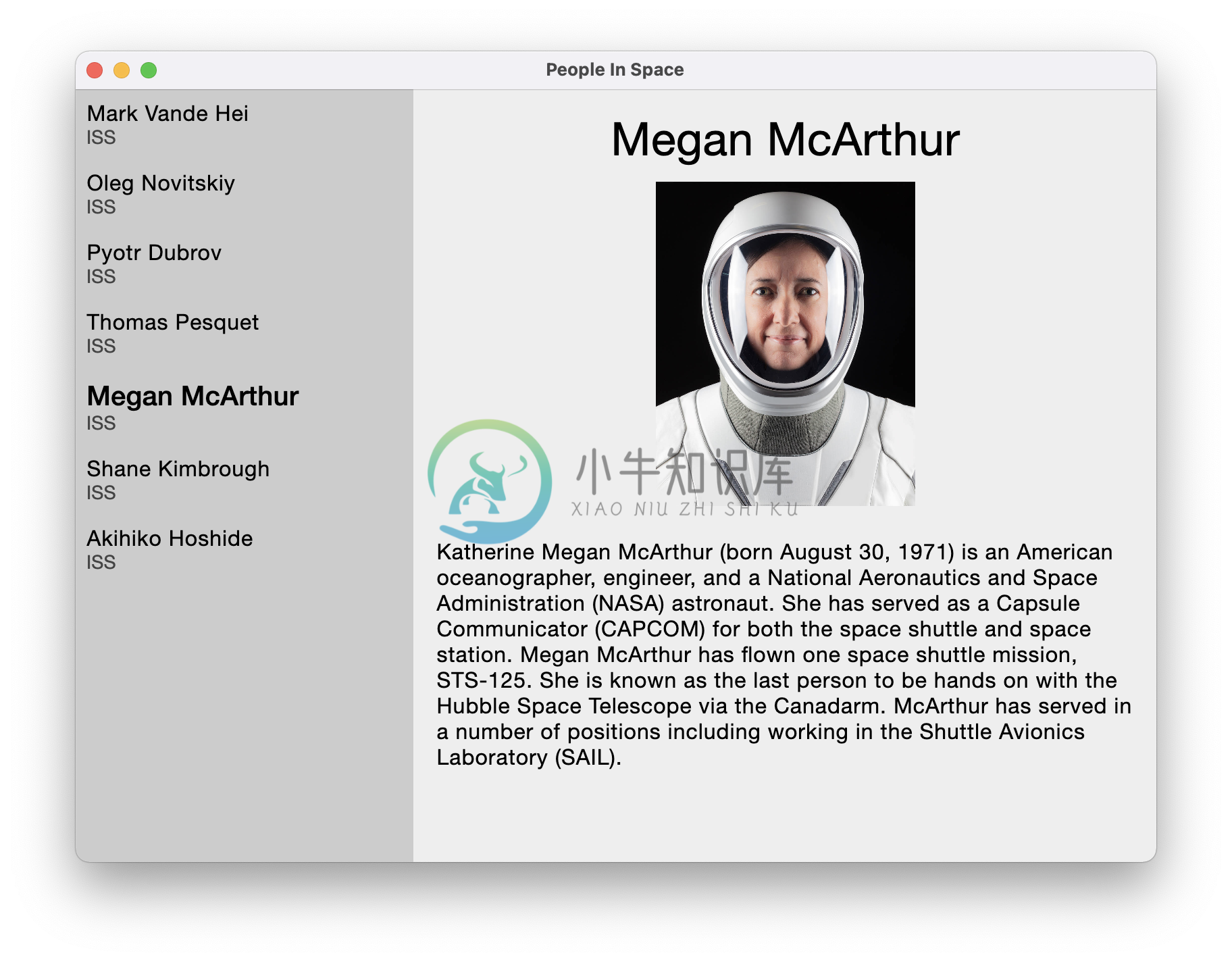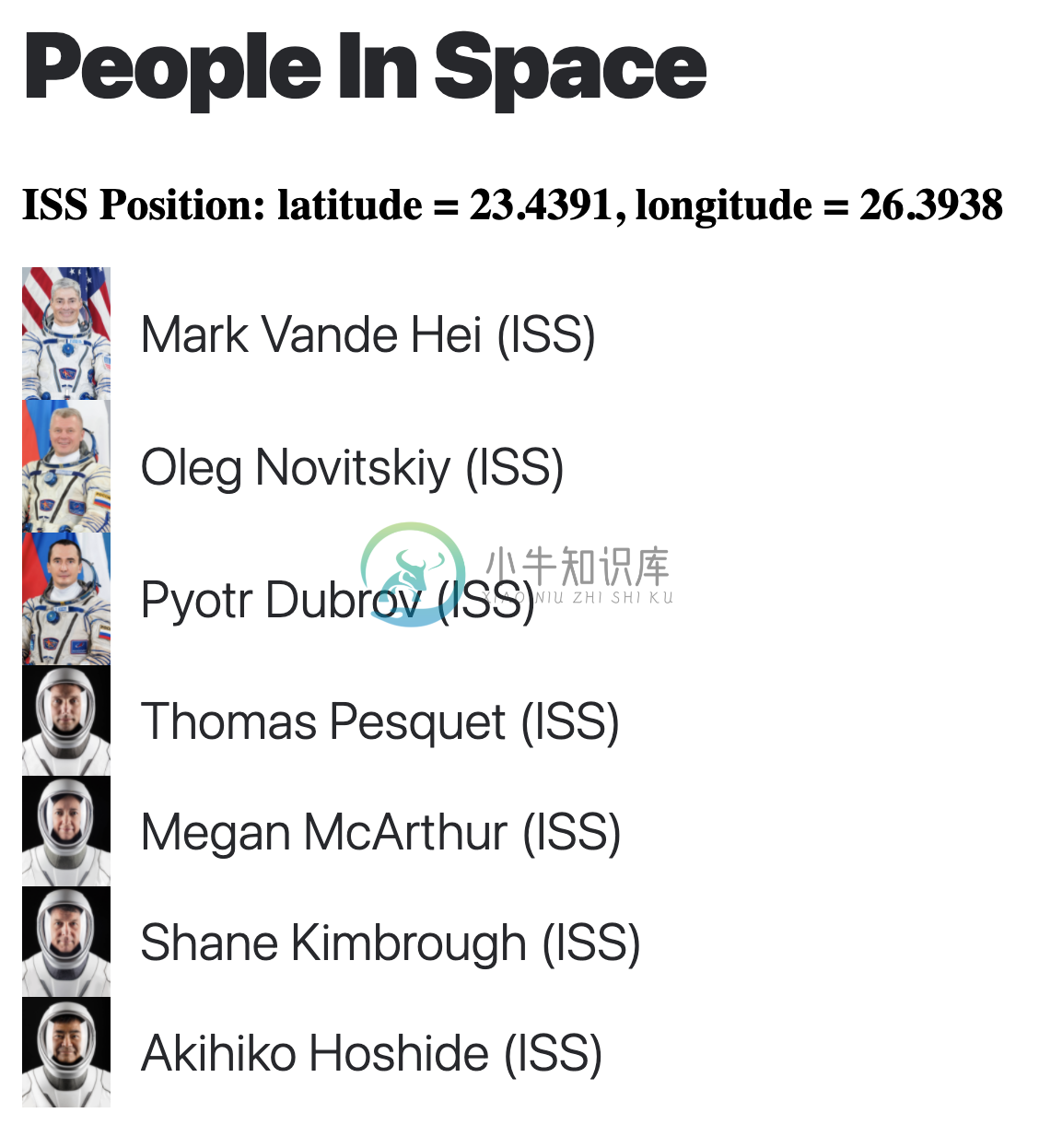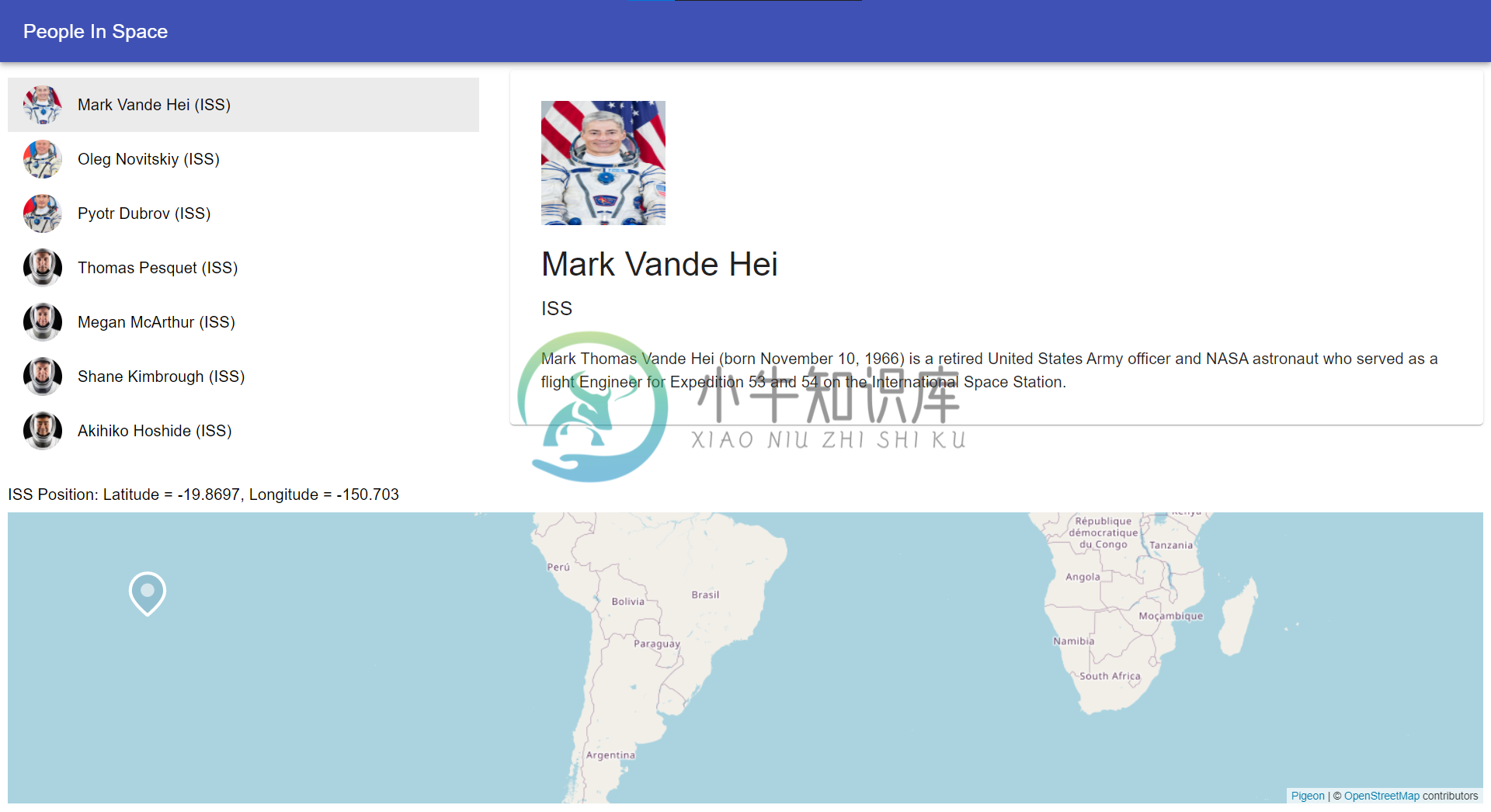PeopleInSpace
Minimal Kotlin Multiplatform project with SwiftUI, Jetpack Compose, Compose for Desktop, Compose for Web, and Kotlin/JS + React clients along with Ktor backend. Currently running on
- Android (Jetpack Compose)
- Wear OS (Jetpack Compose)
- iOS (SwiftUI)
- watchOS (SwiftUI) (contributed by https://github.com/nealsanche)
- macOS (SwiftUI)
- Desktop (Compose for Desktop)
- Web (Compose for Web)
- Web (Kotlin/JS + React Wrapper) (contributed by https://github.com/PatilShreyas)
- JVM (small Ktor back end service +
Main.ktincommonmodule)
It makes use of Open Notify PeopleInSpace API to show list of people currently inspace and also the position of the International Space Station (inspired by https://kousenit.org/2019/12/19/a-few-astronomical-examples-in-kotlin/)!
The project is included as sample in the official Kotlin Multiplatform Mobile docs and also the Google Dev Library
Related posts:
- Minimal Kotlin Multiplatform project using Compose and SwiftUI
- Adding some Storage (to) Space
- Kotlin Multiplatform running on macOS
- PeopleInSpace hits the web with Kotlin/JS and React
- Using Koin in a Kotlin Multiplatform Project
- Jetpack Compose for the Desktop!
- Comparing use of LiveData and StateFlow in a Jetpack Compose project
- Wrapping Kotlin Flow with Swift Combine Publisher in a Kotlin Multiplatform project
- Using Swift Packages in a Kotlin Multiplatform project
- Using Swift's new async/await when invoking Kotlin Multiplatform code
Note that this repository very much errs on the side of minimalism to help more clearly illustrate key moving parts of a KotlinMultiplatform project and also to hopefully help someone just starting to explore KMP to get up and running for first time (and is of courseprimarily focussed on use of Jetpack Compose and SwiftUI). If you're at stage of movingbeyond this then I'd definitely recommend checking out KaMPKit from Touchlab.I also have the following samples that demonstrate the use of a variety of Kotlin Multiplatform libraries (and also use Jetpack Compose and SwiftUI).
Building
You need to use Android Studio Arctic Fox (note: Java 11 is now the minimum version required). Most recently tested with XCode v12 and v13.
When opening iOS/watchOS/macOS projects remember to open .xcworkspace file (and not .xcodeproj one).
To exercise (React based) web client run ./gradlew :web:browserDevelopmentRun.
To run backend you can either run ./gradlew :backend:run or run Server.kt directly from Android Studio. After doing that you should then for example be able to open http://localhost:9090/astros_local.json in a browser.
Compose for Web client
The Compose for Web client resides in the compose-web module and can be run byinvoking ./gradlew :compose-web:jsBrowserDevelopmentRun
Compose for Desktop client
This client is available in compose-desktop module. Note that you need to use appropriate version of JVM when running (works for example with Java 11)
Deploying backend code
Have tested this out in Google App Engine deployment. Using shadowJar plugin to create an "uber" jar and then deploying it as shown below. Should be possible to deploy this jar to other services as well.
./gradlew :backend:shadowJar
gcloud app deploy backend/build/libs/backend-all.jar


